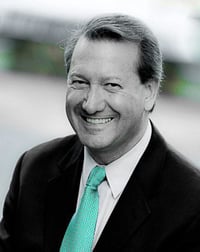A Flickering Flame? America's Declining Strategic Advantage in Optimism and Optimists
A Flickering Flame? America's Declining Strategic Advantage in Optimism and Optimists
by Victor Perton
The New Year dawns with a hopeful glimmer, yet beneath the surface lurk individual experiences that paint a more intricate picture. Recent polls in the United States reveal variations in public sentiment, prompting me to delve into optimism's multifaceted and vital role in American society.
The Harvard CAPS-Harris poll delved into personal outlooks, asking respondents: "In general, are you feeling optimistic or pessimistic about your life over the next year?"
This question invites introspection and captures diverse hopes and anxieties across demographics. Less than half of the respondents, 45%, expressed optimism. A sizable 31%declared themselves pessimistic, perhaps weighed down by concerns about inflation, political polarisation, or global issues.
The Ipsos poll took a different approach, posing the specific question: "Are you optimistic that 2024 will be a better year for you than 2023?"
This comparison to the previous year triggers memories of overcoming challenges, and fosters hope for continued improvement. Consequently, 65% anticipate positive change, highlighting the influence of question framing on responses.
It's crucial to remember that these polls capture snapshots within distinct contexts. While the Harvard poll's open-ended nature allows for diverse perspectives, the Ipsos poll's focus on year-to-year change might resonate more with those who experienced specific hardships in 2023.
Beyond statistics, each respondent carries unique stories, hopes, and fears contributing to their outlook. While the polls offer valuable insights into national trends, understanding the diverse narratives paints a more nuanced picture of American sentiment.
However, the comparatively low overall optimism, particularly compared to other nations, demands introspection and action.
In "Let's Reclaim America's Optimism Advantage," which Dr Terry Paulson shared on our website, Terry emphasised the importance of individual agency and self-reliance in reigniting optimism. He argued that personal accountability, gratitude for the blessings amidst challenges, and embracing the American spirit of freedom and independent pursuit of happiness can foster a more hopeful perspective.
But why is optimism so crucial? Studies reveal it underpins effective strategies, fuels innovation, and fosters resilience – all critical characteristics for success in the 21st century. Leadership in the 2020s demands an inherent sense of optimism to inspire collective action and navigate complex challenges.
Looking beyond America, the IPSOS poll results from Asian countries present a stark contrast. Indonesia boasts an astounding 91% optimism level, followed by India, Mexico, and China at 87%. While cultural and contextual differences cannot be ignored, these figures raise questions about the factors contributing to America's relatively lower optimism.
However, a paradoxical finding emerges when examining optimism by race in the US. Populations traditionally considered disadvantaged, such as African Americans (63% optimism) and Hispanics (47%), report higher levels of optimism than the white population (41%). This highlights the complexities: challenges can often breed resilience and a stronger belief in overcoming adversity.
What does this paradox tell us? It suggests that optimism isn't simply a function of circumstance but rather a complex interplay of individual experiences, cultural influences, and personal interpretations. It also encourages us to move beyond superficial generalisations and celebrate the unique strengths and perspectives of diverse communities within America.
Ultimately, rekindling optimism cannot be achieved through a one-size-fits-all approach. It requires acknowledging the concerns and challenges faced by different groups, empowering individuals to find their sources of hope, and fostering a spirit of collective resilience and self-reliance. By drawing inspiration from Dr. Paulson's principles and understanding the nuanced experiences of diverse populations, we can reignite this spark of hope and navigate towards a brighter future.
I believe in moving forward with infectious optimism, recognising that we have the power to create a brighter future even amid challenges. Remember, optimism is a muscle, and the more we use it, the stronger it becomes.
Can America, in general, choose hope, ignite possibility, and together write a vibrant story of American optimism for generations to come?
 The astute commentator on American leadership culture, James Strock, takes the long-term view, “American history has seen several periods of widespread pessimism amid tumult—and each was succeeded by a subsequent era of renewed optimism and achievement. There’s every reason to aspire to match prior generations in this respect.”
The astute commentator on American leadership culture, James Strock, takes the long-term view, “American history has seen several periods of widespread pessimism amid tumult—and each was succeeded by a subsequent era of renewed optimism and achievement. There’s every reason to aspire to match prior generations in this respect.”
What do you think?

.png)
.png)
.png)

.svg)